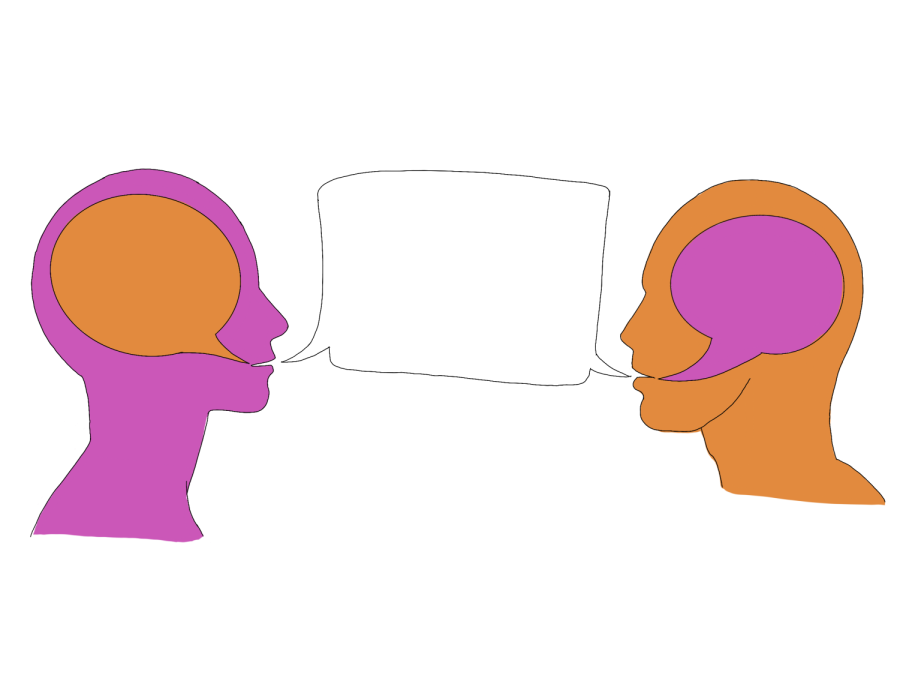Difference of Opinion: Are weed-out classes necessary?
February 17, 2023
OPINION: Weed-out classes are ridiculous
August Endress
Weed-out classes, a term for extremely difficult entry-level classes, are extremely abundant in most STEM majors. This abundance in science, technology, engineering, and math fields is especially confusing because there is a drive for young people to pursue careers within a STEM field. Despite increased interest in STEM fields, there are still not enough people to fill the current labor market. Knowing this, it seems illogical to make an already challenging field even harder. It is important to acknowledge that STEM majors and courses are not a walk in the park. In a fast-moving scientific world, it can be arduous to keep up with ever-changing knowledge, especially as a student. Yet many institutions and professors see a need for weed-out classes.
Traditionally, university classes get tougher with time. There are often rules in place to prevent students from taking classes they are unprepared for. Weed-out curriculums tend to reverse this. Professors shove rigorous material onto students who oftentimes are simply not qualified to take it on. An overwhelming course load may lead to many students leaving the STEM field which is counteractive to our society’s labor needs. Not only does this only discourage students from STEM majors, but it can also lead to self-deprecating thoughts and feelings as if they’re not adequate enough to pursue something so difficult.
Things like this could also happen with easier entry-level classes with any major. Many people turn away from colleges and universities because they do not think they’re intelligent enough to learn. In a world like this, why are things being made worse? Weed-out classes do not ‘weed out’ the weak or unworthy – they discourage bright and enthusiastic minds that need guidance to succeed. With ever-advancing knowledge of mental health, research shows how taxing secondary education is on everyone’s well-being; one study found over 80% of college students felt overwhelmed or exhausted. In a situation that is already mentally distressing, there does not seem to be any reason to make it worse.
Those who make it through weed-out classes with shining grades may have sacrificed their mental health to achieve them, and while it may be motivational for some, others could experience chronic issues by putting themselves through continued and unnecessary stress.
OPINION: Weed-out classes are justified
Leah Boone
When a course like organic chemistry is mentioned, many people’s minds immediately turn to a “weed-out” class. Weed-out classes are courses that often cause college students, normally STEM majors, to alter their major plan due to difficult classes and rigorous coursework. While these courses can be disheartening at times for students wanting to pursue a more science-based degree, weed-out courses are necessary to ensure that dedicated students are moving forward in these fields. Some of the more prominent weed-out classes include organic chemistry one and two, physics and upper level calculus courses. These all take hard work and commitment, but are manageable for those who put forth enough effort and are in a welcoming environment.
There is a fair amount of evidence regarding a trend of declining mental health within STEM majors, but this is true for many other college students outside of the science and math disciplines. Mental health decline could be due to the way a professor is going about a course, other students being condescending toward those who need more time to understand or something entirely unrelated to school. Difficult courses or majors should be led by warm faculty who uplift students no matter the circumstances.
There is a way to handle weed-out courses in a healthy manner that is inclusive to all. Professors can create a wholesome environment in their classrooms in which all students are encouraged to do their best. If the class turns out to be too difficult or uninteresting to students, professors should be supportive in helping the students find a new track instead of casting them down.
In 2020 only 16.5% of students who went into college on a pre-med track actually graduated having completed the track. This is a fairly daunting number for aspiring pre-med students, but it does not have to be. There are multiple reasons why college students would change their route other than the difficulty of STEM classes, including realizing they have a different career aspiration or not being willing to put in the work to continue.
It is no secret that majors that fall within STEM are some of the hardest college paths with many intimidating prerequisites; multiple semesters of chemistry, physics, calculus and biology, potential field experience and participation in research. These paths take an immense amount of dedication and time management, and some people are not willing to put in the work for it. Not only that, but some students may realize their expertise lies elsewhere.
Weed-out classes have developed a highly negative connotation in recent years, but are necessary in order to demonstrate to students the intense path they are on as well as adequately prepare them for post-college academia or jobs. There is a pessimistic stigma around these classes due to the discouraging way some schools or professors go about it, but this can, and should, evolve into a much healthier environment full of encouragement and support.














